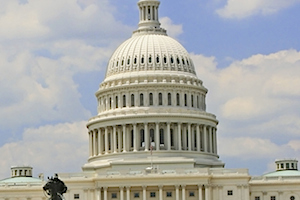 Congress recessed last week until after Labor Day for its traditional August recess. For most of us, it’s a time for travel and vacations. Here in Washington, it’s also a time for reflecting on what has been accomplished and what remains to be done that can be done. So, here is a quick recap of this Congress’ achievement and what remains.
Congress recessed last week until after Labor Day for its traditional August recess. For most of us, it’s a time for travel and vacations. Here in Washington, it’s also a time for reflecting on what has been accomplished and what remains to be done that can be done. So, here is a quick recap of this Congress’ achievement and what remains.
Most recently, Congress approved the Workforce Innovation and Opportunity Act, which President Barack Obama signed into law in late July. Long a top priority of Goodwill and workforce and disability communities, this legislation finally crossed the finish line when members of the Senate Health, Education, Labor and Pensions Committee and House Education and Workforce Committee hammered out a compromise that easily passed the legislative branch.
Also moving through is the Convention on the Rights of Persons with Disabilities (CRPD). This United Nations treaty would ensure that people with disabilities enjoy the same rights regardless of the country in which they live or to which they travel. The treaty fell five votes shy of ratification in 2012. Last month, the Senate Foreign Relations Committee approved the treaty by a 12 – 6 vote, clearing it for a vote by the full Senate. It is still uncertain as to when the Senate might vote on the treaty, but supporters are hopeful it might occur in September.
Please click to contact your Senators to express your support of the CRPD and ask them to move forward with ratification.
Public supporters click here.
Goodwill CEOs click here.
Goodwill staff click here.
In the House, the Ways and Means Committee approved the Achieving a Better Life Experience Act of 2013 (ABLE Act) in July, a major step forward for the bill. The ABLE Act aims to ease financial strains faced by individuals with disabilities by making tax-free savings accounts available to cover qualified expenses such as education, housing and transportation, including medical and dental care, education, community-based supports, employment training, assistive technology, housing and transportation. It will eliminate barriers to work and saving by preventing dollars saved through ABLE accounts from counting against an individual’s eligibility for federal benefits.
It remains to be seen if there are votes and time to pass these two initiatives before Congress adjourns later this year.
Congress also provided additional funding for workforce programs, thanks to a compromise worked out between Sen. Patty Murray (D-WA) and Rep. Paul Ryan (R-WI). The budget deal allowed appropriators to increase resources for workforce programs by $121 million, a welcome respite after a decade of funding cuts.
It is on the funding front that the heaviest lift remains for Congress when they return in September. With a scant 12 legislative days before the end of the 2014 fiscal year, Congress will need to hustle to prevent a government shutdown. While no one thinks a shutdown is likely, just pulling together a continuing resolution will be a challenge.
Pundits are calling the 113th Congress the least productive in history in terms of number of bills passed. But passage of the treaty and the ABLE Act, along with the already approved WIOA legislation, would do much to counter that criticism.



